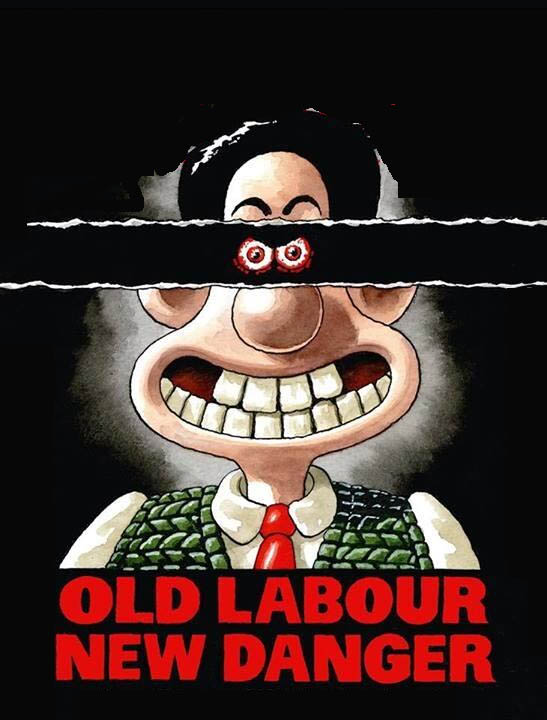Tony Benn said famously, of Tony Blair, “It’s not up to Mr Blair to rename my party. I haven’t suddenly become a member of New Labour. I was never a member of Old Labour.”
There is a therefore a strange cognitive dissonance in this picture to come out of the Spectator factory.
It mixes a parody of the famous Tony Blair ‘evil stare’ with the letters ‘Old Labour’.
Presumably the overall message, unsubtle though it is, is that a vote for Ed Miliband is a vote for socialism.
And the advertising shill in this is that socialism represents a ‘danger’.
No.
Let’s get this clear.
The private finance initiatives led to some investors in the private sector making very good deals on the financing of hospitals and associated services, often with exorbitant profit.
Andy Burnham’s message of letting the market creep in too far is understating the severity of the problem.
There is a plethora of NHS trusts which have been crippled by PFI loan repayment debts.
These loan repayments possibly represent the biggest single threat to the financial stability of the NHS in the forthcoming decades, not the ageing population.
The PFI situation has gone beyond farcicle. An instrument first developed in John Major’s government in 1995, later welcomed with open arms by Tony Blair’s governments and beyond, has clearly been an abuse of power.
Not only can NHS entities conceal their staffing data under freedom of information, but PFI shares in hospitals which may ultimately shut down may be freely traded like carbon credits on the stock market.
That’s what letting the market has become.
You can now hire consultants who are experts and could make you millions on predicting whether your local hospital will shut.
There is no doubt that these market considerations have impacted on the provision of care, which should be made on clinical conditions. And yet the current regulatory set up, which gives a lot of power to Monitor’s elbow, is clearly unable to cope.
It is now widely recognised that the NHS has lacked both the expertise and the resources to cope with the aggressive pimping of services into the private sector.
And private investors are now lining up to provide financing for social value impact bonds, which could help to sustain multinational corporates to enter markets they otherwise would have dreamt of.
This further leads to leeching out of resources away from the NHS to the private sector.
So long as senior leaders in the NHS say technology and innovation need to drive the NHS, you will see further leeching of money into the private markets.
This shift on emphasis, to people ‘finding opportunities in the NHS’, is by far the biggest danger in the NHS. And the political dynamite question is to what extent does Ed Miliband produce a killer stroke?
Everyone concedes the PFI situation is a mess, but should Miliband simply buy back these hospitals into the public sector?
After all buying back shares is common currency currently in corporate land, pardon the pun.
And there is never any shortage of money for illegal wars.
That would be quite a break from New Labour, but the public, and the Spectator know this, might actually welcome a return to state ownership. This is borne out by all the polling evidence in fact.
Despite the undeniable popularity of issues such as immigration considered to be “right wing”, the Spectator might have done Labour a favour – in telling Labour that the Tories are in fact terrified of Miliband and Burnham.


